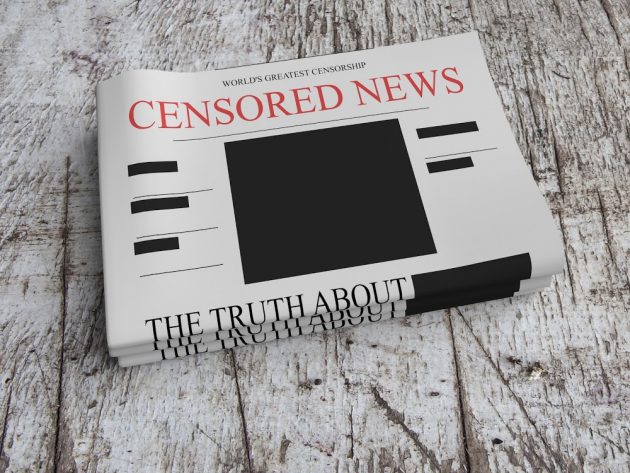Charlie Tidmarsh
The curation at RealClear Censorship this week reflects on a dramatic, defining moment for free speech in this country. On April 17, students at Columbia University began an occupation of the campus in protest of Israel’s ongoing military assault on Gaza. Specifically, hundreds of students and non-student demonstrators established the Gaza Solidarity Encampment with tents on the campus’ East Butler Lawn, demanding their university divest from various corporations and military contractors that profit from trade with Israel. Similar demonstrations sprang up at Princeton, Yale, Harvard, UC Berkeley, NYU, UT Austin, Emory and many more campuses on both coasts throughout the week. Amidst allegations of violence and expressions of antisemitism, dozens of these students have been trespassed from campus, suspended from school and even arrested by state police.
To be clear, some of the documented behavior in these “liberated zones” has been vile and hateful. George Washington University’s encampment displayed a sign demanding all Israelis “go back to Europe;” the iconographies of Hamas and Hezbollah—both extremist terror organizations—have been visible in at least two camps; and one of the leading student organizers at Columbia, Khymani James, was suspended from the school on Friday after a video emerged in which he can be heard saying (to a University counselor) that “Zionists don’t deserve to live.” There should be no equivocation in condemning these attitudes as both profoundly hateful and profoundly ignorant.
In a few cases, however, the response to these demonstrations from campus officials and law enforcement has far exceeded reason. A scheduled walk-out at the University of Texas at Austin on Wednesday was immediately met by a squadron of riot cops who proceeded to arrest more than 50 non-violent students, professors and even a local reporter. Governor Greg Abbott, in cooperation with UT officials, ordered the preemptive police action. Abbot said on X on Wednesday: “Arrests being made right now & will continue until the crowd disperses. These protestors belong in jail. Antisemitism will not be tolerated in Texas, Period.”
Abbott, reacting to reports of hateful conduct on other campuses, intervened before the demonstrations at UT Austin could begin, and certainly before anything other than peaceful right of assembly had taken place. This is frank anti-speech authoritarianism, and you’d be forgiven for thinking it sounds familiar. The tactic of equating hate speech with criminal violence is lifted straight from the progressive playbook that gave us the innumerable campus cancelations and riots of the Trump years. Abbott’s hypocrisy on the issue strains belief: in 2019, he championed Texas Senate Bill 18, which codified protection for “free speech activities” and protests at all public colleges and universities in the state.
To make sense of this moment, we recommend everyone read Angel Eduardo’s excellent rebuke of the arrests at UT Austin, published by FIRE on Wednesday. Eduardo argues that “antisemitism,” in this case, is defined in such a way that core, protected speech is threatened. Eduardo and Greg Lukianoff, president of FIRE, also recently published “If Berkeley Wants to Protect Free Speech, It Will Expel its Rioters” in the Free Press, which makes the case for a minimal tolerance of violence in the service of a maximal tolerance of speech. The distinction between speech and violence is sacrosanct; conflating them risks the very chaos we’ve witnessed this week and last.
The Atlantic published two strong essays on free speech and protest this week. The first is by Erwin Chemerinsky, Dean of UC Berkeley School of Law. Chemerinsky made headlines last week after a video of his wife attempting to remove a protesting student from the couple’s backyard went viral on social media. Chemerinsky and his wife, law professor Catherine Fisk, were hosting an event for students at their home earlier this month when one student apparently seized the moment to deliver a speech in protest of Chemerinsky’s alleged “zionism.” The dean was subjected to a disgusting hate campaign both before and after this event. His essay in The Atlantic this week, “No One Has a Right to Protest in My Home,” is clear-eyed and helpful for those confused about the role of the First Amendment.
Free speech and human rights organization PEN America had to cancel its annual World Voices festival this year after numerous members withdrew in protest of the war in Gaza. Gal Beckerman wrote a strong defense of the organization and others like it—necessary in this moment more than ever—for The Atlantic this week.
Long stymied by disingenuous accusations of conspiracy theorizing, the investigation into the origins of the SARS-CoV-2 virus has been gaining mainstream momentum as of late. A turning point was Emily Kopp’s terrific reporting for U.S. Right to Know back in January on a rejected DARPA grant for viral gain-of-function research drafted by EcoHealth Alliance, the American non-profit that was collaborating with the Wuhan Institute of Virology under NIH oversight. This week we recommend “Toxic: How the search for the origins of COVID-19 turned politically poisonous” by Dake Kang and Maria Cheng for AP, which traces the atmosphere of silence in China and the WHO in the wake of the virus’ emergence in 2020.

